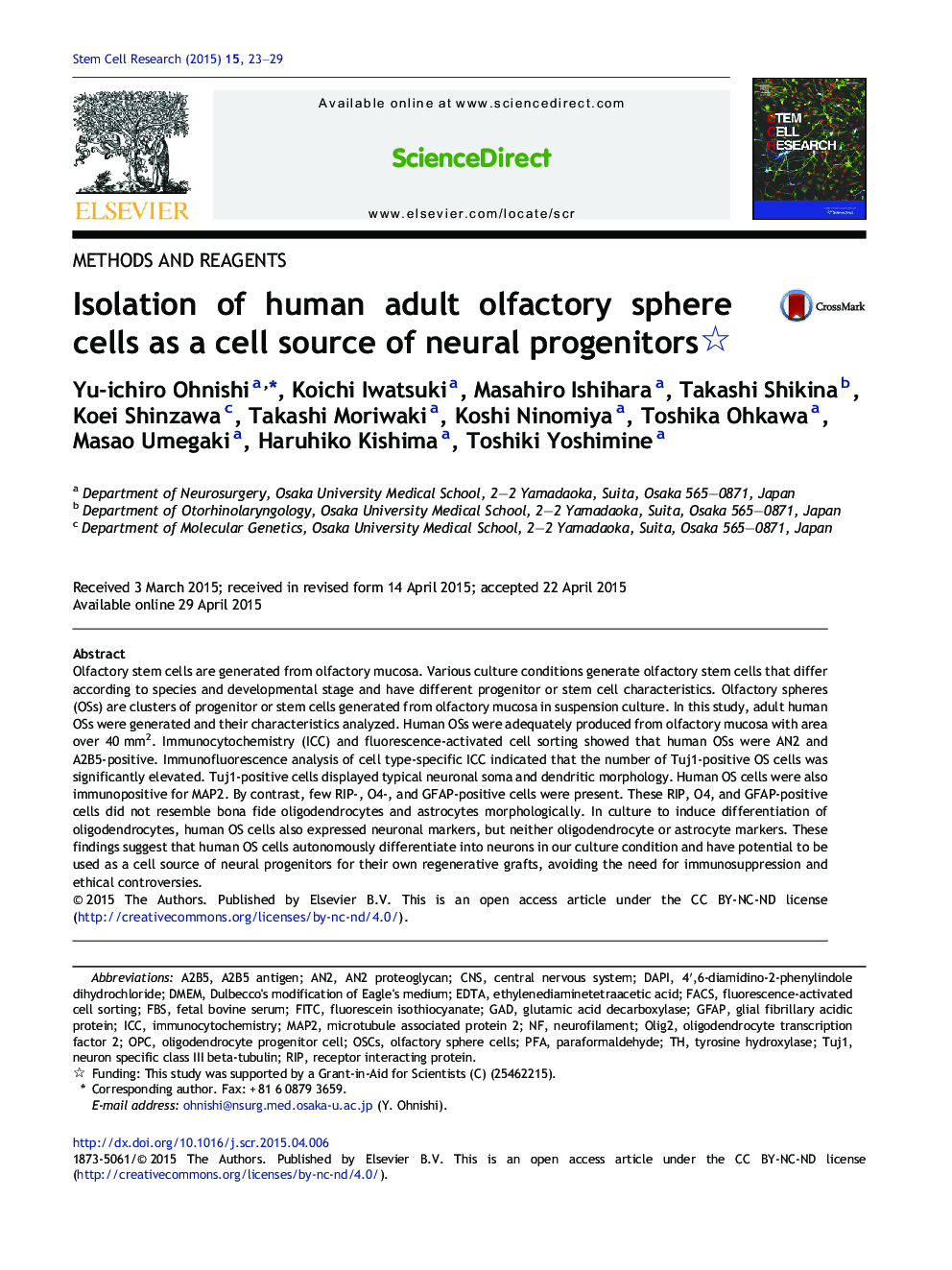| Article ID | Journal | Published Year | Pages | File Type |
|---|---|---|---|---|
| 2094090 | Stem Cell Research | 2015 | 7 Pages |
•Olfactory spheres are clusters of stem cells derived from olfactory mucosa.•Human olfactory spheres were generated from olfactory mucosa in suspension culture.•Human olfactory spheres were AN2 and A2B5-positive.•Human olfactory spheres autonomously differentiated into neurons in vitro.•Human olfactory spheres have properties of neural progenitors.
Olfactory stem cells are generated from olfactory mucosa. Various culture conditions generate olfactory stem cells that differ according to species and developmental stage and have different progenitor or stem cell characteristics. Olfactory spheres (OSs) are clusters of progenitor or stem cells generated from olfactory mucosa in suspension culture. In this study, adult human OSs were generated and their characteristics analyzed. Human OSs were adequately produced from olfactory mucosa with area over 40 mm2. Immunocytochemistry (ICC) and fluorescence-activated cell sorting showed that human OSs were AN2 and A2B5-positive. Immunofluorescence analysis of cell type-specific ICC indicated that the number of Tuj1-positive OS cells was significantly elevated. Tuj1-positive cells displayed typical neuronal soma and dendritic morphology. Human OS cells were also immunopositive for MAP2. By contrast, few RIP-, O4-, and GFAP-positive cells were present. These RIP, O4, and GFAP-positive cells did not resemble bona fide oligodendrocytes and astrocytes morphologically. In culture to induce differentiation of oligodendrocytes, human OS cells also expressed neuronal markers, but neither oligodendrocyte or astrocyte markers. These findings suggest that human OS cells autonomously differentiate into neurons in our culture condition and have potential to be used as a cell source of neural progenitors for their own regenerative grafts, avoiding the need for immunosuppression and ethical controversies.
